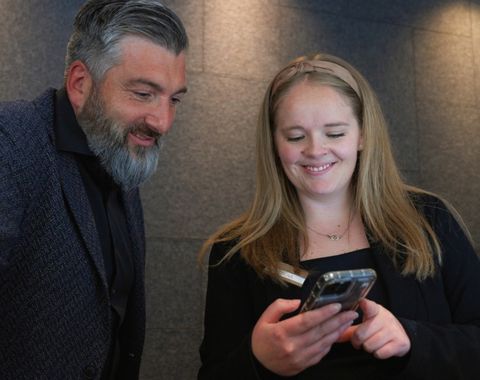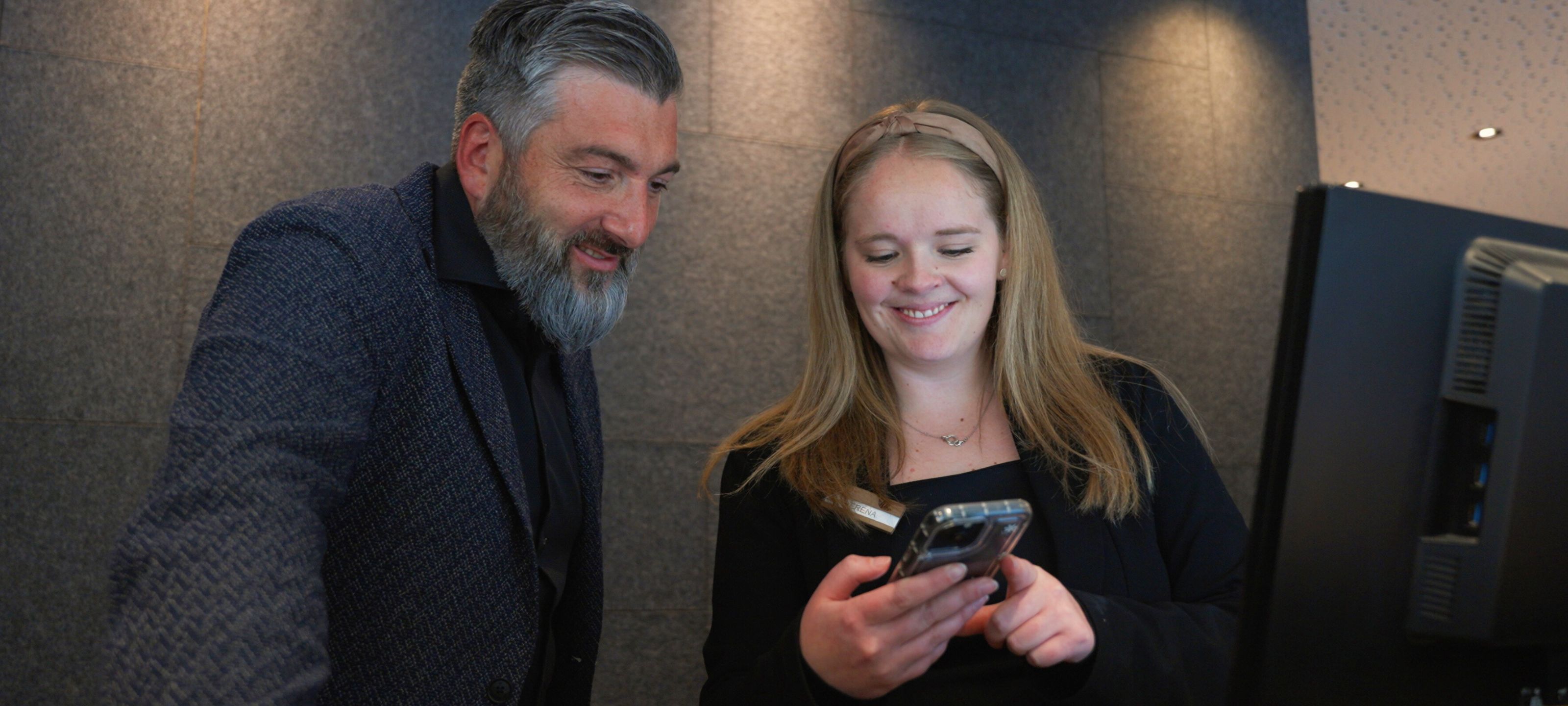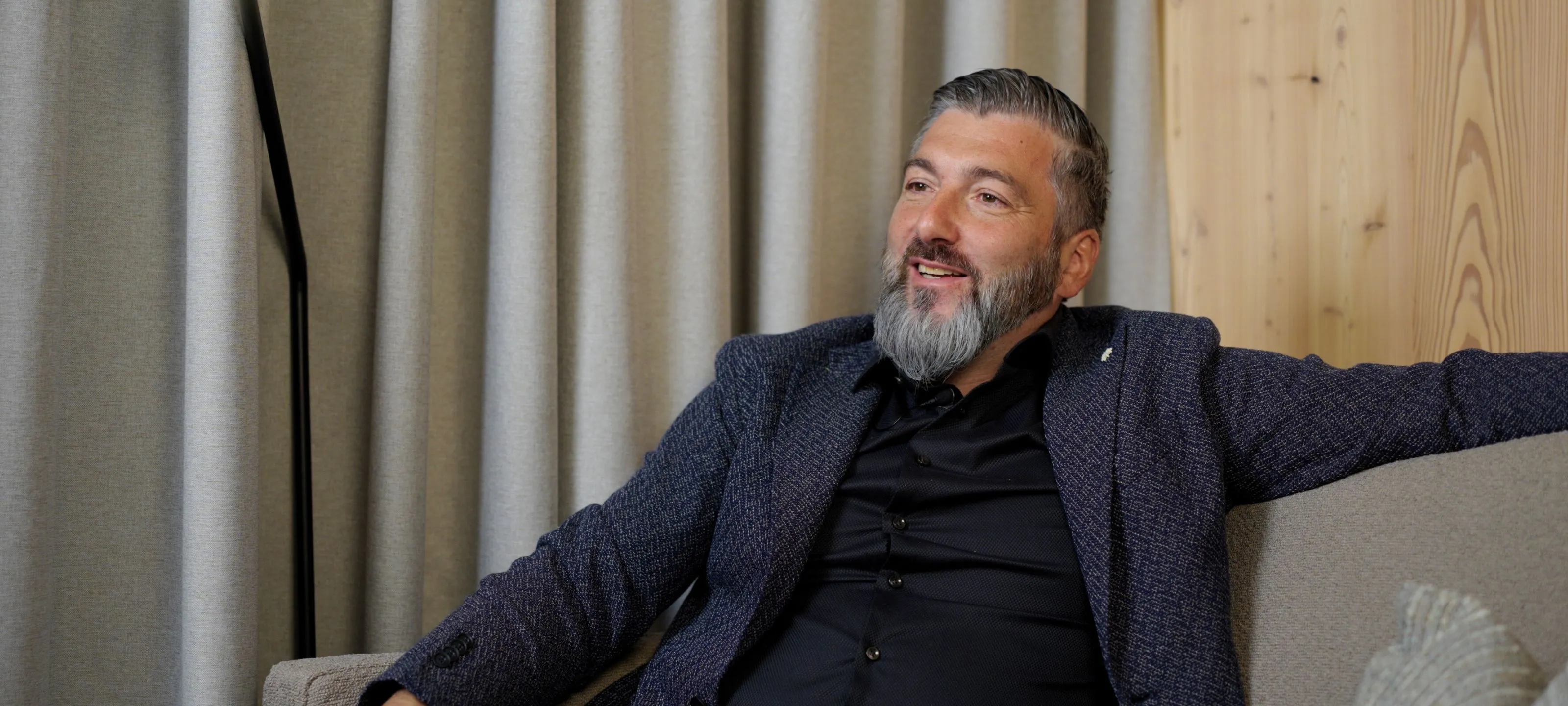
In Conversation with Alexander Wessels, SABA Hospitality

Alexander Wessels from SABA Hospitality talks about the use of chatbots and digital tools in the hotel industry.
<div class="article_quote"><div class="article_quote_contain"><div class="article_quote_quote">"The biggest potential of digitalization in the hotel industry is in guest communication and employee motivation."</div><div class="article_quote_name u-text-style-main">Alexander Wessels, SABA Hospitality</div></div></div>
Alexander Wessels is one of the initiators of SABA Hospitality, a company founded in China in 2018 with offices in Macau and Australia, which develops technology solutions in the areas of guest communication and service (chatbots) and employee motivation for the international hotel industry. Over the past decade, he has been involved in the opening of new hotels for major chains such as Starwood Hotels & Resorts and Marriott International in Asia.
Background and Motivation Behind the Founding of SABA Hospitality
<h3 class="interview-question">Mr. Wessels, please start by telling us about your background and experience in the international hotel industry.</h3>
After several internships in hotels, I studied Hospitality Management in Germany and the USA. Thanks to an internship in Taiwan, I was able to gain a foothold in Asia and was responsible for the opening of large 5-star luxury hotels in various management positions, such as the W Hotel - The Bund in Shanghai, The St. Regis in Macao or the Sheraton Grand Macao Hotel, the largest Marriott hotel in the world with 4,000 rooms. After that, I worked for renowned hotel companies in the Asian region
<h3 class="interview-question">What motivated you personally to start a company and develop software for the tourism industry?</h3>
During this time as hotel managers, the three other founders and I noticed many problematic issues in guest communication and hotel processes. In 2017, we decided to change this in a concrete way. The original idea was not just based on developing chatbots, but on how to improve the hotel experience for guests while making it easier for hotel staff. I like to describe us as a hotel operations company with a passion for IT. We make hotel technology by hoteliers, for hoteliers, and we understand the process intimately. Our content is really tailored to hotels, hospitality in general and casinos.
Development and Features of the Hotel Chatbot
<h3 class="interview-question">What technology solutions has SABA HOSPITALITY developed so far?</h3>
The first solution, which is already on the market, is a hotel chatbot. It takes care of the guest's experience before and during their stay. Most of the bots available in the hotel industry are limited to booking. The chatbot asks for the details of the desired stay and makes a recommendation accordingly. With us, the guest asks the question and gets the answer: from an extra towel to a complaint, from directions to the spa to a personalized wake-up call. We try to automate every question a guest might have in a hotel. This takes the burden off the hotel staff.
<div class="article_quote"><div class="article_quote_contain"><div class="article_quote_quote">"The potential guest is looking for anonymity, which is why chat is so successful."</div><div class="article_quote_name u-text-style-main"></div></div></div>
<h3 class="interview-question">Does the chatbot only handle text questions or voice questions as well?</h3>
Textual, because that is currently the most popular way to communicate with guests. They prefer to remain anonymous and not have to call. Of course, the question can be entered verbally on the phone using the voice function. This is especially popular with Chinese guests, as the Chinese characters are very complex. In principle, we offer a chat module like Messenger or Whatsapp.
<h3 class="interview-question">This immediately raises the question: Is a connection to Google's Alexa planned?</h3>
Absolutely, we even go one step further. If you ask Alexa today, "Alexa, I'd like a towel," Alexa says, "OK, I'll get you a towel. Alexa just repeats the question and doesn't ask any further questions about the type of towel you want, such as whether you want a large bath towel, a small face towel, etc. The same goes for the pillow question. We offer the option to offer the pillow menu provided by the hotel or just the towel selection.
<h3 class="interview-question">So your chatbot solution is customizable?</h3>
Our solution is 100% customizable. We also offer a scalable version with predefined phrases like "breakfast is from 8:00 to 10:00" and the hotel just changes the individual phrases like the time. Of course, for hotels where branding and brand language are important, this needs to be customizable. Another advantage is that it is available in six languages: English, German, Simplified Chinese, Traditional Chinese, Japanese and Korean. 100 additional languages are possible thanks to Google Translator or, if desired, we work with the hotel to develop a solution for a specific language connection.
<h3 class="interview-question">Is this chatbot solution for larger hotel chains?</h3>
We support all types of businesses in different ways, large chains as well as small Airbnb businesses. We have been working with BookingSuite since March 2019, and we are represented in the app store as a solution provider. Larger hotels are mainly interested in reducing the number of daily requests. For smaller hotels, the lack of staff is the problem we solve. Our product is priced based on the number of rooms, so it can be implemented for hotels of any size.
The Potential of Digitalization in the Hotel Industry
<h3 class="interview-question">In which specific areas do you see the greatest potential for digitalization in hotel companies/groups? Is the communication between hotel and guest just the beginning?</h3>
We see two potentials: on the one hand, guest communication, to be able to reach the guest where he wants to be reached, namely on his own phone. It is important to offer technology that fits the guest and not just the hotel. The guest wants to use his own device, not the hotel's.
The other potential is employee motivation: we want to use gamification to make monotonous work processes more attractive. Gamification has been used in other industries for motivation (e.g. the Nike running app), but it is new to the hotel industry. We want to change that fundamentally.
<h3 class="interview-question">What other digitization ideas have potential for hotels?</h3>In a hotel business, employees make guests happy every day with small touches, think of a room upgrade, a cake for a special occasion, etc. These go unnoticed by the hotelier or manager. We are working on being able to track these positive things so that the hotelier knows about them and in turn motivates his employees by rewarding them. Again, gamification plays a role here, but most importantly, tracking.
<div class="article_quote"><div class="article_quote_contain"><div class="article_quote_quote">"The idea of SABA Hospitality is based on guest and employee engagement."</div><div class="article_quote_name u-text-style-main"></div></div></div>
<h3 class="interview-question">In summary, you see the potential of digitalization externally in customer relationship management and customer satisfaction, and internally in employee motivation.</h3>
It's about "guest engagement" and "staff engagement". The word "engagement" it's precisely the merging of "togetherness" on the part of guests and employees that SABA wants to create.
<h3 class="interview-question">What role does artificial intelligence (AI) play in your chatbot?</h3>
Our solution is based on Natural Learning Processes (NLP) and AI. The chatbot understands the difference between asking for a glass of red wine or a glass of red wine, for which AI is essential. We use existing platforms like Google Services, but the content or programming is up to us.
<h3 class="interview-question">Chatbots were identified as a new trend three years ago, but now the hype seems to be more about voice assistance. How do you feel about that?</h3>
Especially in the hotel industry, people are a bit skeptical about the technology right now, because of the eavesdropping issue. In addition, hotels are not willing to install expensive systems in every room that may be obsolete in two years. Voice is going to take off in some areas, and we offer the technology, but it is not as mature as it should be at the moment.
<h3 class="interview-question">What do you see as the biggest challenges in chatbots and AI for the hospitality industry?</h3>
The hotel industry in general is very cautious because of the number of decision makers, especially in hotel chains. They wait before jumping on new trends, they don't take risks, especially because they want a satisfied guest without any complaints. Another challenge is the technology itself: Chatbots are not yet mature. In the future, chatbots will be truly conversational and create a real flow of conversation that is maintained despite sudden topic changes.
<div class="article_quote"><div class="article_quote_contain"><div class="article_quote_quote">"Will AI take over the world? No, but it will continue to help us improve processes, work better and faster in hotels, and make guests happier."</div><div class="article_quote_name u-text-style-main"></div></div></div>
<h3 class="interview-question">What are your thoughts on the development of AI and how well does it work for your application?</h3>
It works quite well for our application. I think when people hear AI, they immediately think of complicated rocket science. The bottom line is that it's simple: some process is handled and queried by a computer, and it's all done in a conversational flow. There's a lot of hype that shouldn't be there. Our modern technology world is evolving and AI is part of that. Will AI eventually take over the world? No, but it will increasingly help us improve processes, work better and faster in hotels, and keep guests happy. For example, our six-language chatbot: no human necessarily needs to speak six languages, so why not just use the help and give hotel staff the opportunity to make the guest happy through technology?
<h3 class="interview-question">How do China and Europe differ in terms of digitalization in the hotel industry and tourism in general? Was that a reason to start a company in Asia?</h3>
Daily life in China is radically different from Europe. I have been living in Asia for 12 years now. Take the issue of cashless payment, for example: in the last two years in Shanghai, I haven't had a single cent of cash with me anywhere. Whether I'm buying a bowl of noodles for 0.50 cents on the street corner or eating in a fancy restaurant for 150 euros, you don't need cash anywhere these days. Or in the sharing economy: I rode a bike to work every day, but not my own. I opened and paid for one of the many bikes in the city, thanks to the smartphone, everything is more accessible. Asians in general are more attached to the smartphone, which of course has a negative side because face-to-face communication is disappearing. The acceptance of technology is higher in Asia, people like to try new things.
The Chinese are the global travel leaders with $240 billion in international travel in 2018, followed by the US with $150 billion and Germany with $87 billion. If you don't adapt to these markets, you will be left behind.
<h3 class="interview-question">Is there a personality from tourism, marketing, or technology that you always wanted to meet? Why, and what would be your central question to that person?</h3>
I don't want to narrow it down to one specific person, I would much rather hear general success stories from founders in the technology sector. What difficulties did today's successful companies like Pinterest or Instagram face in the beginning? To get general advice on how to get back up after falling down 50 times and then be successful, I would find that exciting.
Photo: SABA Hospitality







.jpg)

.jpg)



.webp)
